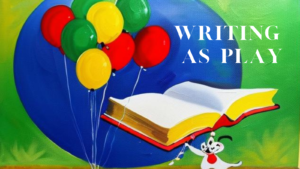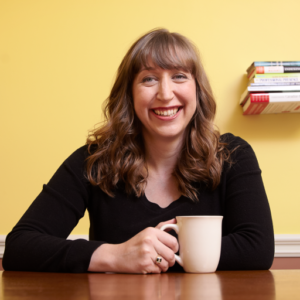 I admit to being a sucker for the Ticky Box. Which is to say, I am perhaps excessively motivated by having Lists and Ticking Things Off Them. I like setting goals for myself, and I’m good at breaking those goals down into smaller steps, rewarding myself for them, all that sort of self-management stuff. I’m keen to write, to write more, to write better; so I use my goals to manage all those things. And as far as it goes (and for as long as it works), that’s great.
I admit to being a sucker for the Ticky Box. Which is to say, I am perhaps excessively motivated by having Lists and Ticking Things Off Them. I like setting goals for myself, and I’m good at breaking those goals down into smaller steps, rewarding myself for them, all that sort of self-management stuff. I’m keen to write, to write more, to write better; so I use my goals to manage all those things. And as far as it goes (and for as long as it works), that’s great.
The trouble is that sometimes all those lists and goals instead get me stuck in fear: fear of not meeting the goals, fear of not improving “˜enough’, fear of not writing the book of my glorious imaginings. (Spoiler: I am never going to write “˜the book of my glorious imaginings’, because my glorious imaginings are a cloud of inchoate vibes, not a collection of real actual words, and a book is a collection of real actual words, not a cloud of inchoate vibes. The best I can do is to approximate it.)
Fear is not good for creativity.
Play, and freedom: those are good for creativity.
So I’ve been working, lately, on freeing myself (somewhat) from the tyranny of the Ticky List and the goals and all of that, and to find ways to engage in writing as play. For me, this still has to go along with a certain amount of structure ““ “˜pissing around on the interwebs for the morning’ is also bad news at least for my creativity (I know people who get inspiration that way, which is awesome; I just get my brain jammed up with everyone else’s thoughts). But it’s structure of the “˜put the internet down’ variety, not structure of the “˜achieve this, that, and the next thing’ variety.
So, here’s some of the things I’ve been trying lately to get my brain playing instead of freaking out. I can’t imagine they’ll all work for everyone, or every time, but hopefully they’ll spark further ideas to go along with them.
Alright, the first one is a bit of a cheat as it isn’t exactly “˜play’, but for me, morning pages or something along those lines (a stream of consciousness onto the page for 5 minutes or 15 minutes or 3 pages or whatever is feasible for you) does a great job of freeing up my brain before I start anything.
Multi-coloured pens! I have a lot of fountain pens with a lot of different inks (not to mention a pack of glitter pens); writing a line in each different colour is ridiculous and time-consuming; and looks REALLY PRETTY and makes me laugh. Win.
Try spending a few minutes before you pick up pen or keyboard on something creative that isn’t writing: drawing, colouring-in, knitting or crochet, whatever. Bonus points for being really bad at it. (Drawing, I can confirm, is most certainly not my strong point.) Embrace being bad at it, and lower the stakes for your creative brain.
I recently received the Story Engine deck, and I’ve been loosening up by pulling a set of cards as a prompt, then writing a paragraph story outline (taking no more than five minutes, and without stressing about how well it works) for each one. The idea isn’t to come up with Your Next Story, the idea is to let the idea-muscles have a bit of unweighted fun.
Try five minute writing challenges: challenge yourself to describe the scene outside (or the passer-by, or the coffee shop) with only concrete nouns (or abstract, which is trickier); or describe a colour without using any colour words; or describe your current situation as if you were in an epic fantasy or a hard SF story; or anything else that feels entertaining. I find that especially with that last one, it pays to remind myself that no one will ever read this, and throw myself into it as thoroughly and dramatically as possible.
Get one of your characters (or someone else’s, if you don’t have an active project or am super stuck on the active project) going on a good dramatic internal monologue. Personally I do rather love a good internal monologue, but often at the edit stage have to administer some cuts. This, however, isn’t the edit stage. This is a time to hang out in a character’s head and be really OTT and self-indulgent. A bit like morning pages, but for someone else’s consciousness.
Make a list of your favourite tropes and do five minutes of your characters (or, again, someone else’s) using each of them. This can be super sketchy / outline-y; I usually start off with bullet points, then get some dialogue popping up, then a bit of description, and sometimes it turns into a “˜real scene’ as I go. But it doesn’t matter if that happens or not; the point is to let yourself go on something purely enjoyable.
Write fanfic, of your own stuff or of someone else’s, as you prefer. (Writing fanfic of your own stuff can be surprisingly enjoyable.) Again, this is about being wildly self-indulgent. Lean hard into your favourite tropes, AU settings, vibes, anything like that. Keep it brief and sketchy; or get stuck into masses of dialogue and detailed description; do whatever feels like fun in the moment. This really is just for you.
In a similar line, you can dive into writing only the bits of your current project that really call to your id, without worrying about creating a Proper Scene or whether it needs any connective tissue. If you do need connective tissue, you can sort that out later. Maybe you won’t need it!
If you’ve got any further ideas for writing as play, share them in the comments! This whole thing is, after all, supposed to be fun. At least some of the time. Embrace the play.
 BIO: Juliet Kemp (they/them) is a queer, non-binary, writer. They live in London by the river, with their partners, kid, and dog. Their most recent book, The City Revealed, the final book in the Marek Series, is out now; and their short fiction has appeared in venues including Analog, Uncanny, and Cast of Wonders. When not writing or
BIO: Juliet Kemp (they/them) is a queer, non-binary, writer. They live in London by the river, with their partners, kid, and dog. Their most recent book, The City Revealed, the final book in the Marek Series, is out now; and their short fiction has appeared in venues including Analog, Uncanny, and Cast of Wonders. When not writing or
child-wrangling, Juliet knits, indulges their fountain pen habit, and tries to fit an ever-increasing number of plants into a microscopic back garden. They can be found at https://julietkemp.com, on Twitter as @julietk, or on Mastodon as @juliet@zirk.us
If you’re an author or other fantasy and science fiction creative, and want to do a guest blog post, please check out the guest blog post guidelines. Or if you’re looking for community from other F&SF writers, sign up for the Rambo Academy for Wayward Writers Critclub!







 This experienced meaning is, I think, the reason why I’ve had a hard time reducing my novel
This experienced meaning is, I think, the reason why I’ve had a hard time reducing my novel 
